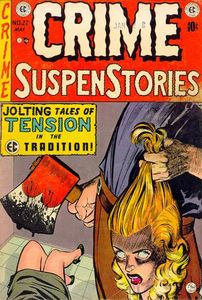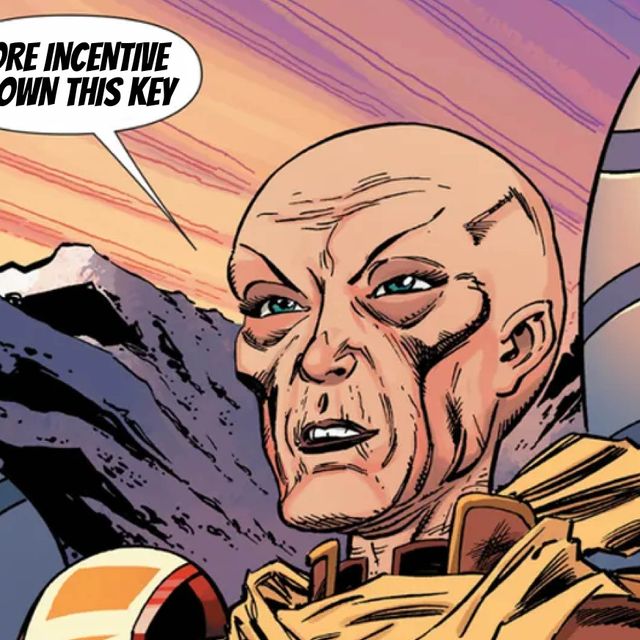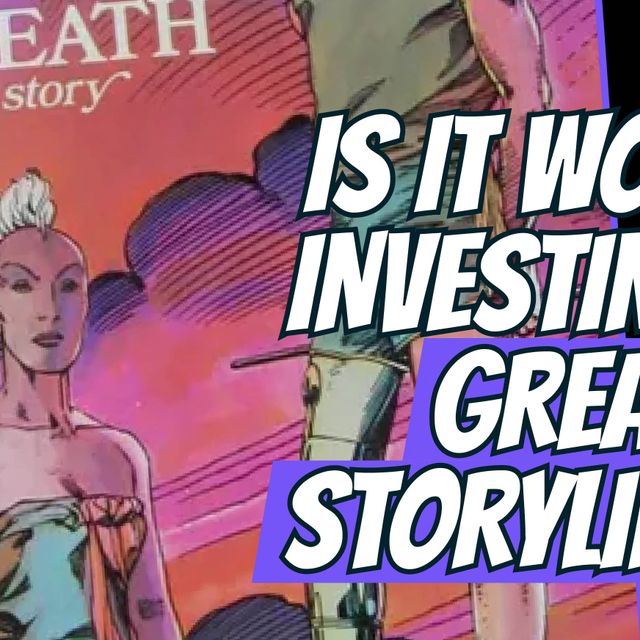Can the crime comics of the Golden Age provide a good return or merely a great collectible? One such comic is Crime SuspenStories #22 written by Albert Feldstein. A six-man EC art team was used to create this infamous comic and cover. The group consisted of Craig, Crandall, Krigstein, Severin, Kamen, and Orlando. This comic is currently ranked in the top 50 of Golden Age comics (GoCollect). The issue shows a brutal picture of a woman's severed head and a bloody ax. It was a shocking image for the time. These kinds of pictures and the larger than life cover lettering spurred on hyperbolic outrage by some politicians in the 1950's.
When Crime SuspenStories #22 published in 1954, the world was different from today. Let's peel back the vale of history to the 1950's. One of our greatest leaders "President Dwight D. Eisenhower had established the Domino Theory on communism, "Rock Around the Clock" was recorded and became a big hit, and the vile Senator Joseph McCarthy began hearings investigating the United States Army for being soft on Communism"(Wiki). A different time to be sure, and one replete with censorship in Hollywood, comics, and political life.
Unfortunately, for the crime-horror genre, it's time had come to an end. The notoriety of Crime SuspenStories #22 would spell the end of the crime-horror genre. In 1954, the Senate held hearings on juvenile delinquency and used Crime SuspenStories #22 as a god awful prop for the Senate investigation. During these hearings, Senator Kefauver questioned Bill Gaines the publisher EC comics, "Here is your May issue. This seems to be a man with a bloody ax holding a woman's head up which has been severed from her body." Senator Kefauver continued, "Do you think that is in good taste?" The EC publisher Gaines answered adroitly, "Yes, I do-for the cover of a horror comic" (Overstreet Guide 47th edition).
The Comics Magazine Association of America (CMAA) decided to self-regulate its comics before a government mandate. They named New York Magistrate Charles F. Murphy to head what would become the CCA or Comics Code Authority. This code effectively banned "depictions of violence and gore in crime and horror comics, as well as sexual innuendo of good girl art." Murphy's CCA code created a restrictive list "lurid, unsavory, gruesome illustrations, vampires, werewolves, ghouls, and zombies could not be portrayed. Also, comics could not use the words "horror" or "terror" in their titles. The use of the word "crime" was subject to numerous restrictions" (Wiki). For the next fifty years, we had comic censorship.
MAD Magazine #24
EC's crime-horror publishing genre went downhill after the restrictions from the code. It forced Bill Gaines to develop Mad under a magazine title where the comic code did not apply. EC changed the format to a magazine, to avoid censorship from the fallout of the Senate hearings. The first issue of MAD is MAD Magazine #24 (1955). It isn't that expensive and runs about $113 (eBay) grade very good (5.0). I believe this is a long-term speculation play, think of it as diversification of asset types. This is a different type of comic book, other than superheroes.
The Golden Age of crime-horror produced the infamous Crime SuspenStories #22. It certainly has great historic value, but what is its current profitability? Is it worthy of speculation? One raw copy is selling for $1440 grade (1.8) on eBay. Twelve days ago a copy of CSS #22 sold for $2000 grade (3.0) also on eBay. This has given some lucky owner a 52.7% return on this comic. The lower classes on this issue sold for $1100 grade (1.0) just 40 days ago (GoCollect). These profits are enough to make your head spin clean off. Yeah, I went there.
Crime SuspenStories #22 is not cheap. However, this crime comic is profitable and carries the distinction of being a key historic issue. Apparently, crime does pay in comics, and it is a crime not to own one of these landmark keys. Don't lose your head, try to buy one now.
Note: This CCA comic code stamp system lasted until the early twenty-first century; DC Comics was one of the last to remove the CCA stamp from their comics in 2011.



